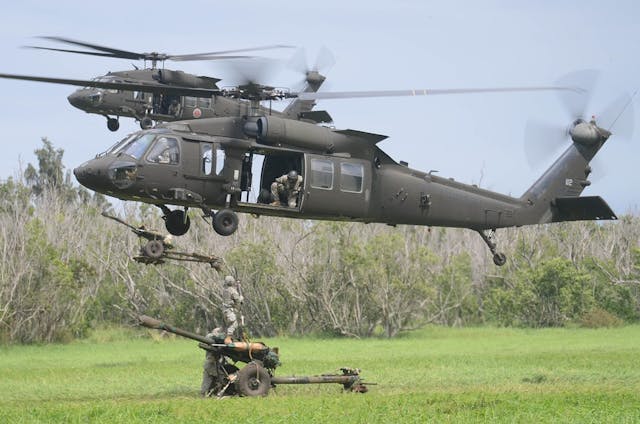UH 60 Helicopter Review: Every Little Thing You Required to Know
UH 60 Helicopter Review: Every Little Thing You Required to Know
Blog Article
The Influence of Sustainable Practices on the Future of Aircraft Workflow and Emissions Decrease
As the air travel sector faces enhancing examination over its ecological influence, the fostering of lasting techniques becomes a vital path toward future airplane operations and discharges decrease. Advancements in lasting air travel fuels and innovations in hybrid propulsion modern technologies stand at the forefront of this improvement, encouraging considerable decreases in greenhouse gas emissions. However, the effective integration of these efforts depends upon a range of factors, consisting of regulative frameworks and industry cooperation. The question stays: exactly how will these progressing techniques improve the characteristics of flight and add to an extra sustainable future?

Introduction of Lasting Practices
Lasting methods in airplane operations include a variety of approaches targeted at lowering environmental impact while maintaining functional efficiency. These methods are important in the aviation market's commitment to reducing its carbon impact and adhering to international ecological standards. Trick campaigns include optimizing flight courses to reduce fuel consumption, boosting maintenance procedures to make certain airplane operate at peak effectiveness, and applying advanced innovations such as winglets and lightweight products that improve the rules of aerodynamics.

Involving and educating staff on sustainability practices additionally play an essential role, cultivating a society of ecological obligation within organizations. In general, the assimilation of these sustainable methods not only assists decrease exhausts however likewise improves the long-lasting practicality of the air travel industry, guaranteeing it fulfills the demands of both customers and regulative bodies while adding to worldwide sustainability goals.
Innovative Fuel Alternatives
Numerous ingenious fuel options are emerging as essential services to reduce the aviation industry's reliance on traditional nonrenewable fuel sources. Amongst these options, Lasting Air travel Fuels (SAFs) have gained substantial focus because of their potential to lower lifecycle greenhouse gas emissions by approximately 80% compared to traditional jet fuels. SAFs are originated from different feedstocks, consisting of waste oils, farming deposits, and even algae, making them a flexible alternative for the market.
Another appealing choice is hydrogen gas, which, when utilized in fuel cells, generates only water vapor as a result. Additionally, electric propulsion systems are being checked out, leveraging battery technology to power airplane.
Lastly, biofuels originated from biomass are being explored, providing a renewable alternative that can be blended with typical fuels. Jointly, these innovative fuel choices represent an essential action toward attaining a sustainable aeronautics environment, aligning with worldwide emissions decrease targets and improving the industry's ecological stewardship.
Technological Advancements in Air Travel

How can technical developments improve the future of aviation? The combination of sophisticated innovations is pivotal in changing aircraft procedures, enhancing efficiency, and lowering discharges. Innovations such as hybrid and electrical propulsion systems are at the forefront, appealing considerable decreases in fuel usage and greenhouse gas exhausts. These systems leverage developments in battery technology and energy monitoring, enabling aircraft to operate with a lower environmental impact.
Additionally, the execution of innovative products, such as lightweight composites, adds to boosted aerodynamics and gas efficiency. Using artificial intelligence and artificial intelligence in flight procedures optimizes route preparation and minimizes fuel melt by enabling real-time modifications based on climate and web traffic conditions. Furthermore, the development of autonomous and remotely piloted airplane systems stands to revolutionize cargo and guest transportation, possibly increasing performance while minimizing human error.
Moreover, lasting air travel technologies, including innovative air website traffic management systems, can decrease and streamline operations blockage, leading to lower exhausts during flight. These advancements collectively represent a standard shift in aeronautics, guaranteeing a future where sustainability and operational effectiveness are linked, therefore sustaining the sector's dedication to lowering its ecological impact.

Regulatory Structure and Compliance
In light of the expanding focus on environmental stewardship within the air travel sector, the regulative framework governing aircraft procedures is evolving to promote lasting techniques. Regulative bodies, such as the International Civil Aeronautics Organization (ICAO) and numerous nationwide aviation authorities, are presenting rigid standards targeted at minimizing exhausts and enhancing functional performance.
These regulations frequently consist of the fostering of Lasting Aeronautics Fuel (SAF), which has been identified as a vital part in accomplishing reduced carbon impacts. In addition, compliance with these guidelines calls for airline companies to carry out functional methods and advanced technologies, such as enhanced flight paths and boosted air web traffic management, to lessen gas intake.
Additionally, the enforcement of exhausts trading schemes and carbon countering efforts is coming to be significantly prevalent, engaging airlines to check and report their exhausts properly. Non-compliance can lead to considerable penalties, therefore pressing operators to prioritize sustainability in their company models.
Ultimately, the advancing regulatory landscape not only drives technology and financial investment in eco-friendly technologies but likewise cultivates a culture of liability within the aviation sector. As these structures remain to develop, the focus on lasting practices will certainly be important to accomplishing the market's long-term click to find out more environmental goals.
Future Fads in Aircraft Operations
As the Homepage air travel market adapts to a significantly stringent regulatory setting, future fads in aircraft operations are established to focus on ingenious services that additionally enhance sustainability and effectiveness - uh 60. Secret advancements will likely include the fostering of innovative air traffic administration systems, which use real-time data and man-made knowledge to optimize flight courses, decreasing fuel usage and discharges
Another significant pattern is the increased integration of lasting aeronautics gas (SAFs) These alternatives to standard jet gas, derived from eco-friendly sources, can substantially lower lifecycle greenhouse gas exhausts. The industry's commitment to SAFs will likely accelerate as airlines work together with fuel manufacturers to make certain availability and cost-effectiveness.
Additionally, the press towards electrification and hybrid propulsion systems is obtaining momentum. Emerging aircraft layouts will include these technologies, providing quieter and more efficient operations, specifically for short-haul trips.
Verdict
In conclusion, the assimilation of sustainable methods in aircraft procedures holds substantial potential for exhausts decrease and enhanced effectiveness. The fostering of sustainable aviation gas, combined with advancements in hybrid and electrical propulsion systems, is necessary for decreasing lifecycle greenhouse gas exhausts. Maximizing flight courses and welcoming ingenious technologies contribute to a quieter and much more ecologically pleasant air travel field. Jointly, these efforts straighten with international sustainability goals and lead the way for a greener future in aeronautics.
Innovations in sustainable air travel gas and improvements in crossbreed propulsion modern technologies stand at the forefront of this makeover, encouraging significant reductions in greenhouse gas exhausts.Numerous ingenious gas options are arising as essential services to minimize the aeronautics market's dependence on typical fossil fuels - uh 60. Among these choices, Sustainable Aviation Fuels (SAFs) have actually gained substantial interest due to their potential to decrease lifecycle greenhouse gas emissions by up to 80% compared to conventional jet fuels.An additional considerable pattern is the boosted combination of sustainable aviation gas (SAFs) The fostering of sustainable air travel gas, combined with innovations in hybrid and electric propulsion systems, is essential for lessening lifecycle greenhouse check out this site gas exhausts
Report this page